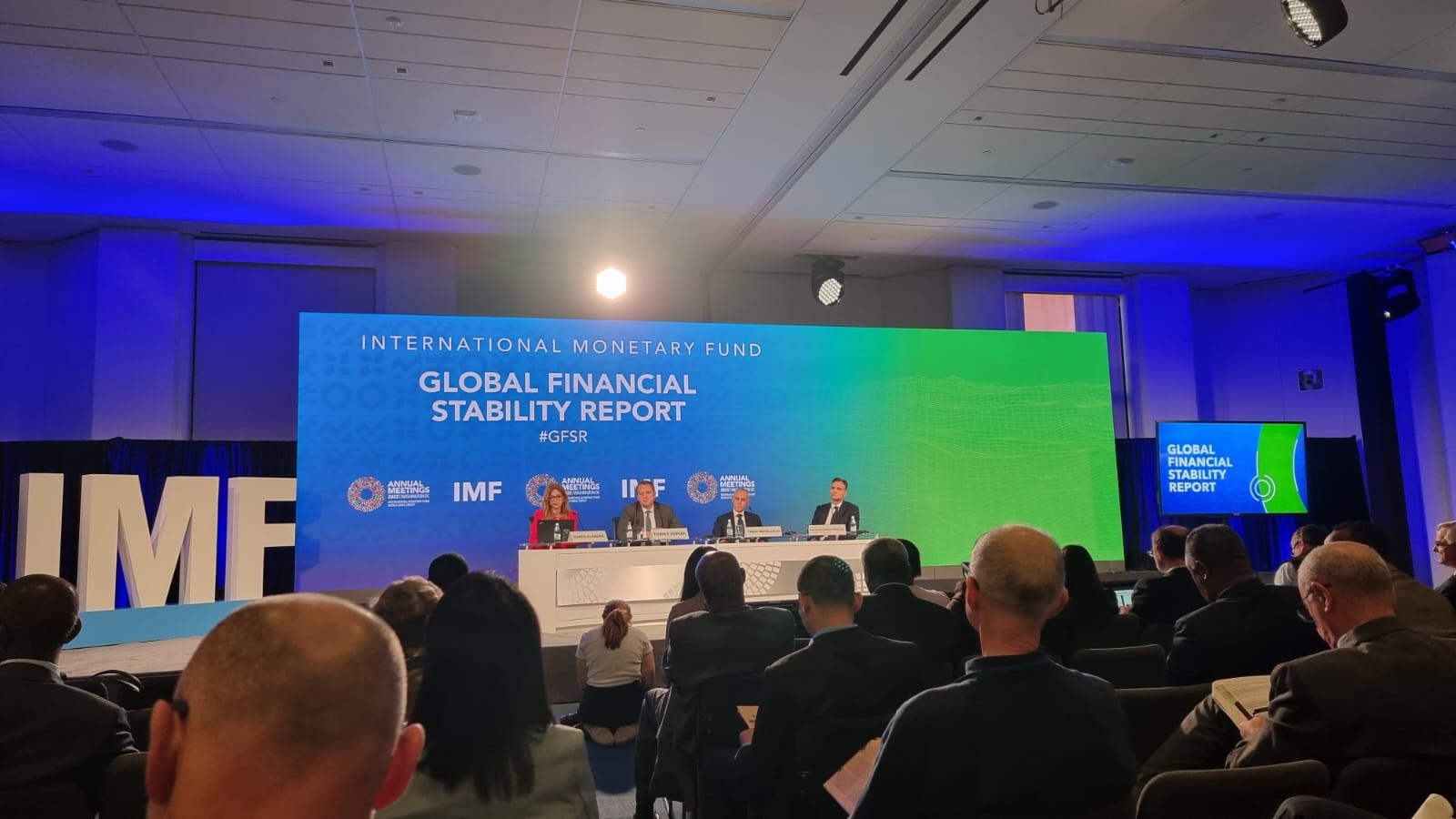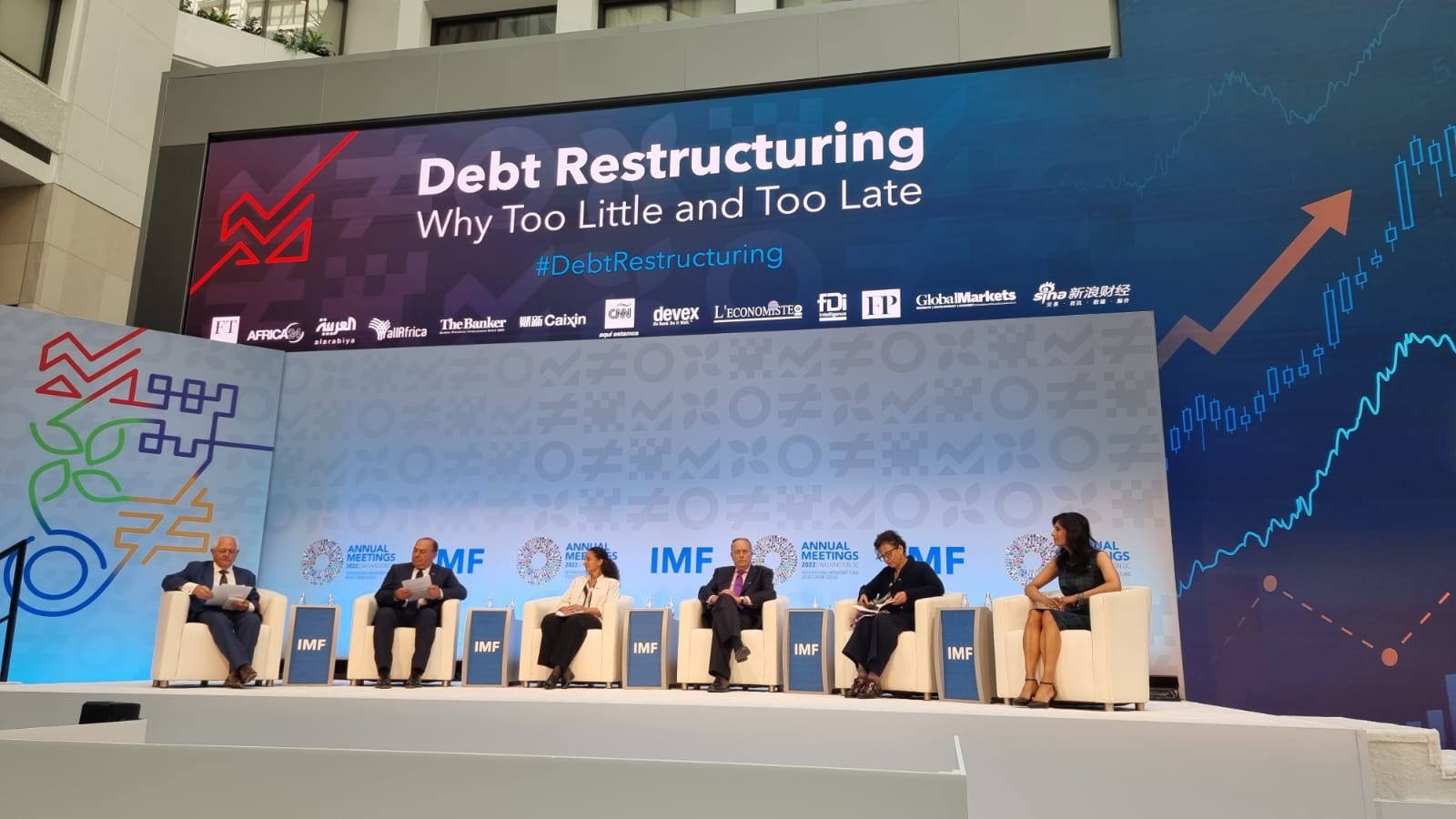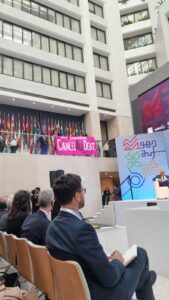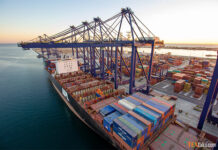After narrowly scoring a visa right before the IMF and World Bank Group Annual Meetings 2022 were due to begin, I found myself in Washington DC in early October 2022 to attend. This year’s meeting was important. Not only were we in an ongoing fund programme but the country was also ravaged by a flood.
You’re probably wondering why I’m writing this in the middle of November rather than immediately after the meetings. I wanted to wait for the outcome of the meeting, if there was going to be one.
Things have not been easy for Pakistan. My first few conversations with people in line for registration, other journalists at the press centre, and delegates waiting to listen to panel discussions when they begin were of a similar pattern. Every time I’d introduce myself and say I was from Pakistan, I was met with a similar response.

“Oh man! You guys got it real bad these days,” said a delegate that sat with me as we waited to hear a panel discussion on Debt Restructuring.
This got me thinking.
Do we really have it bad enough for most countries to know we have it bad? Did we really become relevant enough in public discourse? Then it hit me, this is not the good kind of relevance. You can argue that there is no such thing as bad publicity but being known for its constantly crisis-struck condition isn’t the best possible scenario for Pakistan.
The IMF does not care for Dar
In the last review, the IMF provided Pakistan with $1.2 billion. On October 13, during one of the press briefings on the region, Jihad Azour, Director of the Middle East and Central Asia Department at the IMF stated that the IMF would be fielding a mission in November after the annual meetings to Pakistan in order to start preparing the authorities for the next review.
While Pakistan expected the Fund to be a little more accommodating than usual in light of the floods and let it be more fiscally irresponsible, the chances seemed unlikely. “We were saddened by the loss of human as well as livelihood in Pakistan with the flood and we present, and we reiterate our condolences for the people of Pakistan. As you know, the Fund has been very supportive of Pakistan over the last period. We have a program with Pakistan that has been extended and increased in size. This is to help Pakistan deal with the confluence of shocks starting with the Covid crisis where we provided additional flexibility,” said Azour.
He went on to add that the Fund is relying on the World Bank and UNDP to assess the damages of the flood and the repercussions on public finance and the impact on the economy and on society. He also answered a question on the petrol price subsidy Pakistan witnessed at the beginning of the year. “… As in other parts of the world, subsidies that are targeted to support certain items have proved not to be very effective. I would say it has proved to be very regressive. Therefore, we are encouraging Pakistan as well as other countries to move from an untargeted subsidy that is a waste of resources and to dedicate those resources to those who need it. I will give you one simple example. The region spends on social protection 2% of GDP, and in certain cases what countries are spending on subsidies could be double of that.”

The very fact that the IMF is convinced Pakistan cannot hand out frivolous subsidies on fuel anymore can be seen by the fact that earlier this week the Economic Coordination Committee (ECC) decided to increase the petroleum levy to Rs 50 per litre. The committee also allowed up to $15 barrel premium on high-speed diesel to private oil marketing companies for the months of November and December.
While Ishaq Dar claims he knows how to negotiate with the Fund as he has a 25-year track record of doing so (for context, I am 26); we can clearly see he has not managed to win them over with his historic relationship charm.
Adding to this Dar was presented with a summary by the Federal Board of Revenue (FBR) asking him to impose a 17% sales tax on high octane keeping in mind that sales tax on petroleum goods was reduced to 0% in February 2022 and has come in the way of FBR achieving its targets for the year.
The very fact that Pakistan could not use the flood as a reason to keep the levy low for long, or that the FBR is feeling the brunt of not meeting targets in an already fiscal-challenged nation shows that the IMF has asked Dar to get his house in order and that there will be no over accommodative stance from the Fund and the World Bank.
Is it really jumping through hoops?
Pakistan has had its fair share of aid over the past few years, however, at a time when more than 33 million people are impacted by the floods in Pakistan you’d expect a massive influx of funds no questions asked. The economy, already cash-strapped and reserve hungry, found itself at a critical point during the floods in need of support, especially in the case of reserves.
That, however, was not the case. For instance, Pakistan had to accomplish all conditions attached to the Resilient Institution for Sustainable Economy (RISE-II) programme to be able to receive a $450 million loan from the World Bank. The Asian Infrastructure Investment Bank (AIIB) also granted approval to co-finance $450 million bringing the funding to $900 million.
Previously under the RISE-I program of $500 million for Pakistan, the World Bank had focused on improving fiscal management and fostering growth and competitiveness. The RISE assisted the government in improving intergovernmental fiscal architecture to enable the country to improve its fiscal position.
One step forward, two steps back
The phrase is usually two steps forwards, one step back. That implies, as we all know, you’re still moving ahead, slowly but surely ahead. The case for Pakistan, of course, is different. Any semblance of progress is highly politicised and eventually brought back to what it was in the past prior to reform.
A prime example of this is the SBP Act which called for autonomy of the central bank. Speaking off the record with various members of the Fund who had worked on the autonomy of central banks in the region, a running joke was how the central bank of Pakistan may continue to be autonomous on paper but not so in practice.

The very fact that the rupee is strengthening while import cover remains a little over one month shows just how dire the situation is. Adding to this, the limitation of LCs, limiting FX outflows, etc show just how weak the rupee really is. Despite all that, it is strengthening.
In the past, the central bank on behalf of the finance ministry has urged banks to run losses in order to reverse FX depreciation in the rupee. That goes to show how autonomy and independence are a joke in practice.
Adding to this, various members of the Fund that look into Pakistan joked about how they’ve dealt with more than six different people heading the finance ministry and the only reason the number isn’t eight is because Miftah Ismail and Dar are repeat finance ministers within a span of five years.
With such a perception, one has to wonder what value the political gimmickry and fiery speeches in public rallies have. In reality, that gentleman sitting next to me during the Debt Restructuring discussion indeed had it right.
As my wild trail of thoughts came to an end, flashing back at every wrong repeated economic decision made over the past few years, I nodded my head and said, “Yes, we do have it bad. However, deep down I believe someday we will leave this spiral. Sooner rather than later.”
























Am surprised you think we will exit this relationship with the IMF as we have turned to them nearly the number of years you have been on the planet.
Why should the government tell them where they can take it? Yet that is exactly where the law currently stands.
Welcome to Versatile Coupons, the final location for getting a versatile deal on your internet-based buys. Our central goal is to assist customers with enjoying you find the best arrangements and limits on the items you love. We comprehend that setting aside cash can be intense, particularly while shopping on the web. That is the reason we’ve made it our objective to present to you the best-in-class coupons and markdown codes from top retailers. Whether you’re looking for garments, gadgets, or home merchandise, we take care of you.